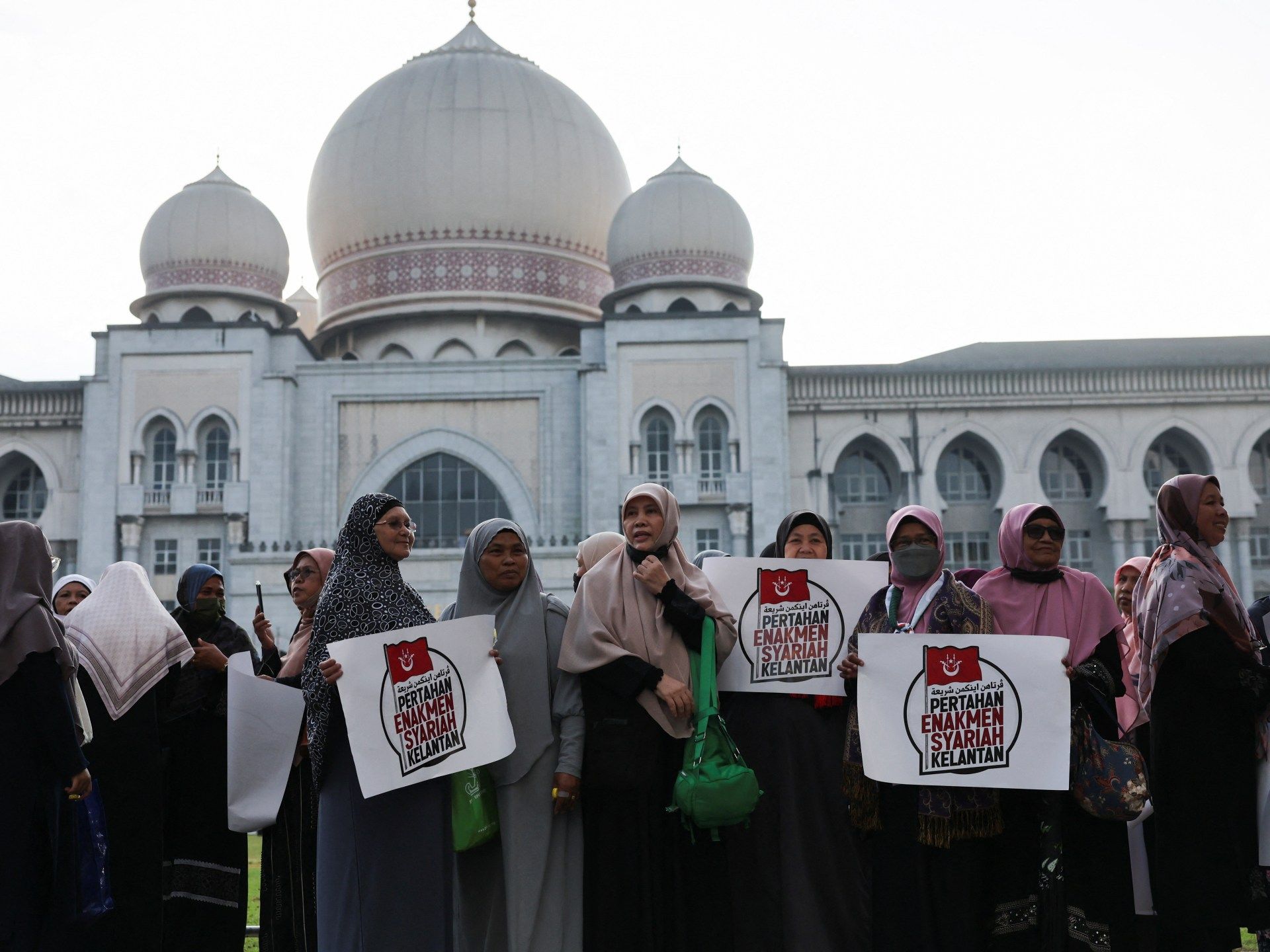A majority ruling could have significant legal implications in a multi-ethnic country that operates a dual judicial system.
Malaysia's top court has ruled that 16 Islamic laws in the northeastern state of Kelantan are unconstitutional in a landmark decision that could have major implications for the country's legal system.
By a majority of 8 to 1, the Federal Court ruled on Friday that the Kelantan state government had no jurisdiction to enact laws on crimes ranging from sodomy to sexual harassment, possession of false information, intoxication and measurements scale, because they were already covered by federal law and were the responsibility of the federal parliament.
Malaysia is a federal country where states have jurisdiction over laws related to Islam, the official religion. It also operates a dual legal system where Islamic law applies to Muslims, who make up just over 60 percent of the population, in personal and family matters, as well as in the practice of their religion. All other crimes are tried by civil courts.
Kelantan, considered the heartland of ethnic Malay Muslim culture, has been governed by the opposition Parti Islam SeMalaysia (PAS) since 1990.
“The power of parliament and state legislatures is limited by the Federal Constitution and they cannot pass any laws they want,” Chief Justice Tengku Maimun Tuan Mai was quoted as saying by Malaysia's BFM radio as she presented the court's findings. panel of nine judges.
The case was filed in 2022 by Kelantan lawyer Nik Elin Zurina Nik Abdul Rashid and her daughter after the state government passed a new set of laws on Islamic crimes.
The two challenged the constitutionality of 18 of the laws arguing that they were beyond the jurisdiction of the state assembly and were already covered by parliament.
The Federal Court did not strike down the other two laws and stressed that the two women had not brought the case to challenge the position of Islam or the Islamic legal system.
Around 1,000 people, including PAS supporters and conservative Muslims, gathered outside the Putrajaya court before the ruling.












